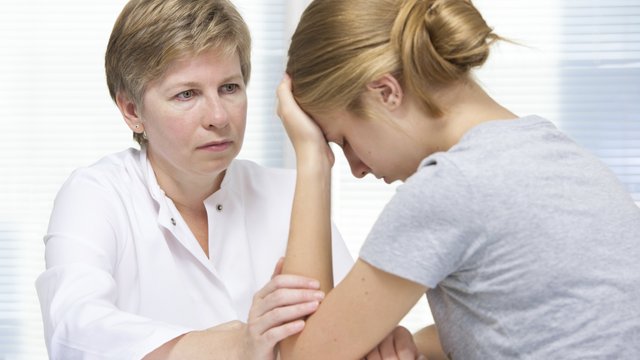On Air Now
Capital Breakfast with Fat Brestovci & Laura Anderson 6am - 10am
13 March 2018, 07:20

Having bereavement counselling to cope with grief improves wellbeing in adults, a new study has found.
The five-year research study of more than 300 adults also discovered higher rates of complicated grief among bereaved people who are at or below the poverty threshold.
Scottish charity Cruse Bereavement Care Scotland said around 10-20% of the general population is at significantly increased risk of suffering complicated grief which is associated with a higher risk of earlier death, including heart disease, and suicide as well as increased absence from work.
Study participants who were living in poverty were more than twice as likely to experience complicated grief than those who were better off.
Cruse Bereavement chairwoman Christine McLintock said: "The research showed bereavement counselling reduces symptoms of complicated grief significantly - and that the impact is greater than the passage of time alone.
"The higher prevalence of complicated grief among bereaved people living at or below the poverty threshold was surprising and significant."
She added: "When I became Chair, a funder asked 'How can you know whether the improvement in well-being of a bereaved person wouldn't improve equally as well with the passing of time?'
"Cate Newsom's painstaking research clearly shows bereavement counselling for those who need it significantly improves wellbeing and this improvement continues long after the counselling has completed.
"This is breakthrough research because unresolved bereavement issues can have a long-term negative impact on both physical and mental health."
Charity chief executive Stewart Wilson said: "There was a significant difference in wellbeing after 18 months between clients who had received counselling and those who chose not to proceed."
He said the results indicate the importance of getting "the right support at the right time".
Ms Newsom carried out the survey for the charity at the University of Utrecht in the Netherlands, interviewing 341 adults soon after bereavement, one year later and finally 18 months later.